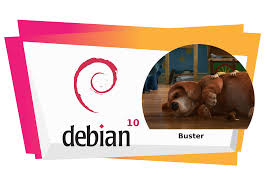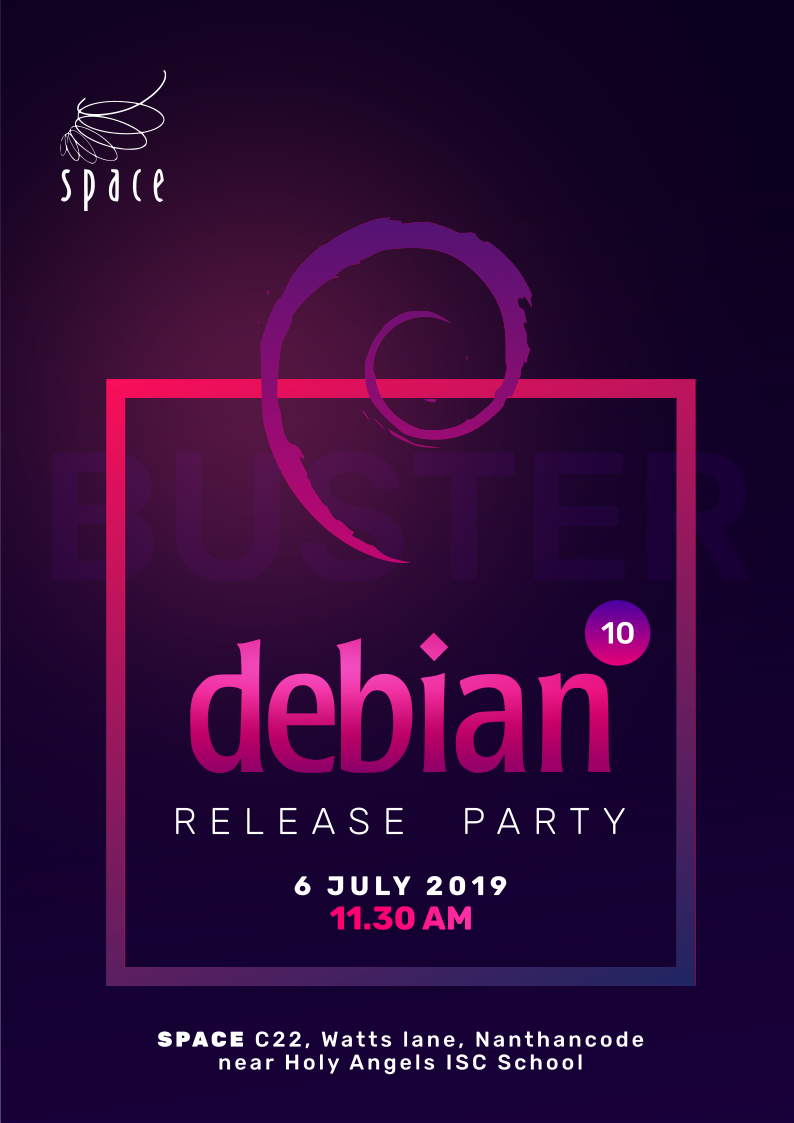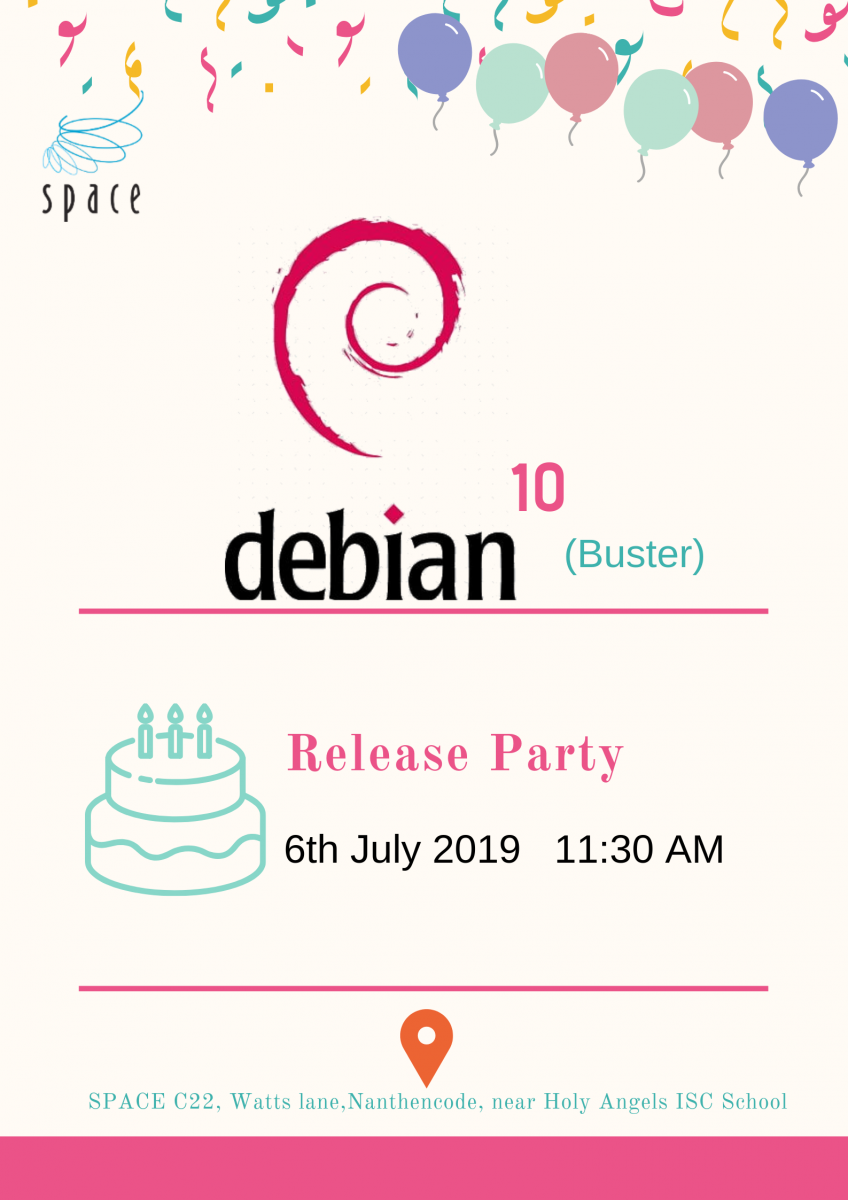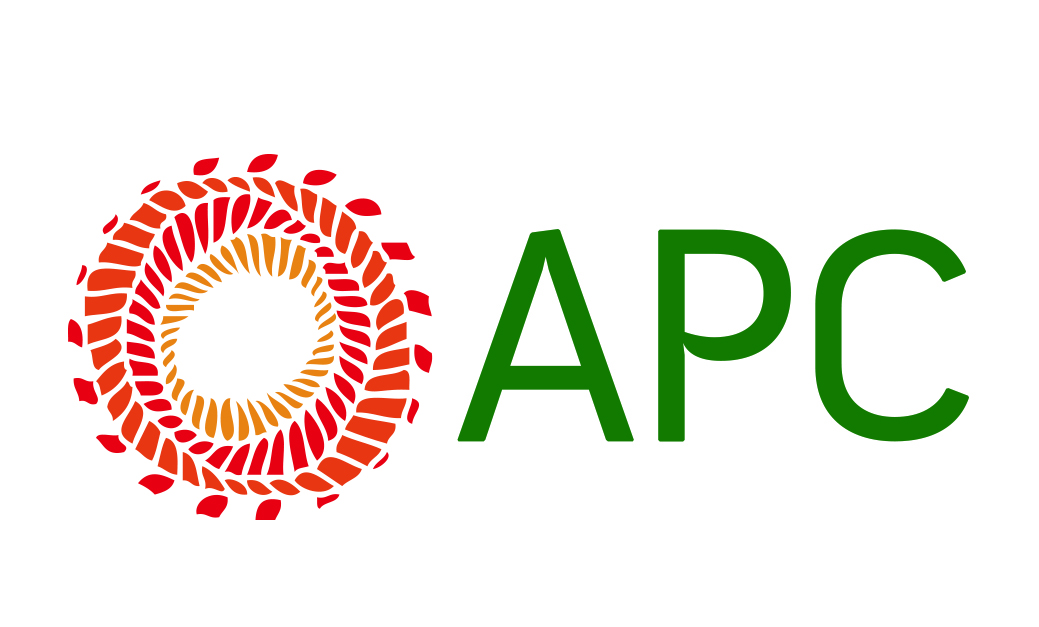 Debian 10 which is codenamed as ‘Buster’ was released on 6th July 2019. Debian release which is considered as one of the main events in the free software community celebrated all over the world by different local communities. (wiki page link ). In Kerala, release parties were organized in Trivandrum, Ernakulam, Thrissur & Kannur.
Debian 10 which is codenamed as ‘Buster’ was released on 6th July 2019. Debian release which is considered as one of the main events in the free software community celebrated all over the world by different local communities. (wiki page link ). In Kerala, release parties were organized in Trivandrum, Ernakulam, Thrissur & Kannur.
SPACE ( Society for Promotion of Alternative Computing & Employment) one of the early adopters and promoters of free software in Kerala conducted the release party for all the free software supporters.
The question of why Debian is released in such a way & why SPACE is doing the same needs to be addressed. We also hope that the relevance of such release parties & objectives it should meet need also be discussed in the context of this new Debian Release.
Debian & Free Software
Debian is one of the earliest operating systems based on the Linux kernel consisting entirely of free software. The Debian Stable branch is the most popular edition for personal computers and network servers and is used as the basis for many other Linux distributions. The project is coordinated over the Internet by a team of volunteers guided by the Debian Project Leader and three foundational documents: the Debian Social Contract, the Debian Constitution, and the Debian Free Software Guidelines. Debian has been developed openly and distributed freely according to the principles of the GNU Project. In short, Debian is the operating system developed by a community bounded by free software ideologies for the free software community.
Debian & SPACE




 It is of no wonder in SPACE an NGO which is closely aligned with free software principles, promoting the adoption and use of Debian. SPACE considers it as an important event were free software community can have a good reason to celebrate since the project continues to be running successfully & growing at a good pace without any deviation from its free software interests. We could say, no one can ‘own’ Debian or better it is ‘owned’ the free software community. Hence we believe, it is the responsibility of the community to celebrate the release of Debian. SPACE had done it in the past and did it now and will definitely continue to do it in the future since we belong to the free software community.
It is of no wonder in SPACE an NGO which is closely aligned with free software principles, promoting the adoption and use of Debian. SPACE considers it as an important event were free software community can have a good reason to celebrate since the project continues to be running successfully & growing at a good pace without any deviation from its free software interests. We could say, no one can ‘own’ Debian or better it is ‘owned’ the free software community. Hence we believe, it is the responsibility of the community to celebrate the release of Debian. SPACE had done it in the past and did it now and will definitely continue to do it in the future since we belong to the free software community.
How to use & promote Debian
It is often a feeling that free software or Gnu/Linux was intended for advanced computer users and was not designed for common people. A part of this myth is propagated by the proprietary alternatives and other part contributed by the boasting tech people within the community itself. It is entirely wrong…
SPACE which considers free software as a way of life and tries to demonstrate its various use cases in every common life scenarios, working (not just saying) hard to change this misconception. We believe if you use Debian because you believe in free software, things will get much clearer & simpler. It is also this message what we’re trying to pass with such release parties.
More Importantly, we are using Debian and we ‘ll help all those who want to start working with Debian and other free software technologies with the idea of free software in mind.
More About Debian
The Debian Project was officially founded by Ian Murdock on August 16th, 1993. Ian intended Debian to be a distribution which would be made openly, in the spirit of Linux and GNU and was initially sponsored by the FSF.
Debian was meant to be carefully and conscientiously put together and to be maintained and supported with similar care. It started as a small, tightly-knit group of Free Software hackers, and gradually grew to become a large, well-organized community of developers and users.
When it began, Debian was the only distribution that was open for every developer and user to contribute their work. It remains the most significant distributor of Linux that is not a commercial entity. It is the only large project with a constitution, social contract, and policy documents to organize the project. Debian is also the only distribution which is “micro packaged” using detailed dependency information regarding inter-package relationships to ensure system consistency across upgrades.
The official pronunciation of Debian is ‘deb ee n’. The name comes from the names of the creator of Debian, Ian Murdock, and his wife, Debra


